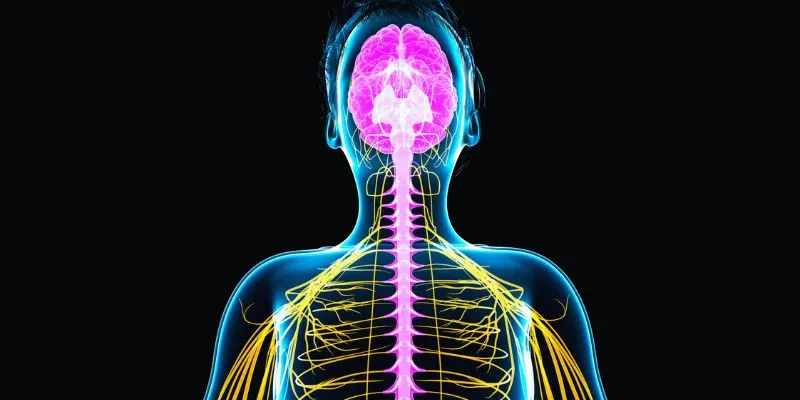Causes of Fatigue and How to Manage It
Fatigue is a common issue that many people face, with causes ranging from underlying medical conditions to lifestyle choices. Whether your fatigue is physical, psychological, or a combination of both, understanding its causes and how to manage it is crucial for maintaining your energy levels and overall well-being. In this article, we will explore the various causes of fatigue and provide practical solutions to help you feel more energized.
What Is Fatigue?
Fatigue is a state of constant tiredness or lack of energy that can affect your performance both physically and mentally. It often results from physical exertion, mental stress, or lack of sleep, but it can also be an indicator of a more serious medical issue. Fatigue can be chronic, lasting over a long period, or temporary, lasting just a few days. Regardless of its duration, fatigue can significantly impact relationships, quality of life, and work productivity.
Causes of Fatigue:
- Lack of Sleep:
One of the most common causes of fatigue is inadequate sleep. Adults need about 7-9 hours of sleep per night for optimal health, but many people fail to get enough due to poor sleeping habits, irregular schedules, or sleep disorders. Chronic lack of sleep can impair cognitive functions such as memory, focus, and decision-making, leading to persistent fatigue.

- Poor Diet and Nutrition:
An unhealthy diet can lead to fatigue because the body lacks the essential nutrients needed for energy production. Deficiencies in vital vitamins and minerals like iron, vitamin D, and B vitamins can exacerbate fatigue, as can a diet high in processed foods, sugar, and unhealthy fats. Dehydration is another nutritional factor that can contribute to tiredness. A balanced diet and adequate water intake are crucial for maintaining energy levels.
- Anxiety and Stress:
Mental health plays a significant role in fatigue. Persistent anxiety and stress can deplete your physical and mental resources, leading to exhaustion. Long-term stress activates the body’s “fight or flight” response, which increases blood pressure, heart rate, and adrenaline, potentially causing fatigue. Emotional issues like anxiety and depression can also disrupt sleep cycles and drain energy, contributing to tiredness.
- Sedentary Lifestyle:
Contrary to popular belief, lack of physical activity can cause fatigue. Extended periods of sitting or inactivity can lead to sedentary behavior, weakening muscles and reducing energy levels. Regular exercise boosts energy, improves blood circulation, and promotes better sleep, all of which can help alleviate fatigue.
- Health Issues:
Medical conditions like chronic fatigue syndrome (CFS), fibromyalgia, anemia, diabetes, and thyroid disorders can cause fatigue. Often, fatigue is a symptom of a more serious underlying issue that requires medical attention. If fatigue persists despite lifestyle changes, it is important to consult a healthcare professional to rule out medical conditions.
- Burnout and Overwork:
Burnout, a state of physical, emotional, and mental exhaustion, can result from excessive work, long hours, and insufficient breaks. Often associated with work-related stress, this type of fatigue can lead to poor decision- making, low motivation, and decreased productivity. Recognizing the signs of burnout early and taking steps to address it is crucial before it becomes a significant issue.

Simple Fatigue Management Solutions:
- Improve Sleep Quality:
Enhancing your sleep quality is an effective strategy against fatigue. Create a comfortable sleep environment, maintain a consistent sleep schedule, and avoid screens and stimulants like caffeine before bedtime. Relaxation techniques such as deep breathing or meditation can help you unwind and achieve restorative sleep. If you struggle with sleep disorders like insomnia, seeking professional help is essential.
- Optimize Your Diet:
Maintaining a balanced diet is vital. Aim to consume nutrient-rich foods like fruits, vegetables, lean proteins, and whole grains. Avoid sugary snacks, processed foods, and excessive caffeine, as they can lead to energy crashes. Iron-rich foods such as spinach, beans, and lean meats can help prevent anemia-related fatigue, while a vitamin-rich diet can boost overall vitality. Staying hydrated is equally important, so aim to drink plenty of water daily.
- Exercise Regularly:
Exercise is one of the best ways to combat fatigue. Physical activity enhances blood circulation, delivering more oxygen and nutrients to your muscles and tissues. It also releases endorphins, which increase energy and improve mood. Regular activities like walking, cycling, or swimming can help reduce fatigue and improve overall health.
- Effectively Manage Stress:
Managing stress effectively is crucial to preventing fatigue. Practices such as yoga, meditation, or deep breathing exercises can calm your mind and reduce stress. Dedicating time to hobbies and activities you enjoy can also help alleviate stress and promote relaxation. If stress or anxiety is a persistent issue, consider consulting a therapist or counselor to develop coping strategies.
- Take Breaks and Rest:
Without regular breaks, overworking yourself can lead to burnout and increased fatigue. Ensure you take breaks to rest and recharge, whether at work or home. Incorporate stretching or relaxation techniques into your routine to relieve physical tension and prevent fatigue. If you feel overwhelmed, don’t hesitate to step back from responsibilities and allow yourself to rest.
- Seek Medical Attention When Needed:
If fatigue persists despite lifestyle changes, it may indicate an underlying health issue. Have a thorough medical check-up to rule out conditions like anemia, diabetes, or thyroid abnormalities. Managing chronic conditions with a healthcare professional’s guidance can help alleviate fatigue symptoms. It’s important not to ignore chronic fatigue, as it could signal more serious health problems.
Conclusion
Fatigue can stem from numerous factors, but with the right strategies, it is often manageable. By improving sleep, eating healthily, exercising regularly, managing stress, and seeking medical attention when necessary, you can reduce fatigue and enhance your overall quality of life. Take proactive steps to address the root causes of your fatigue and regain your energy.
Adopt these strategies today to combat fatigue and restore balance in your life.











